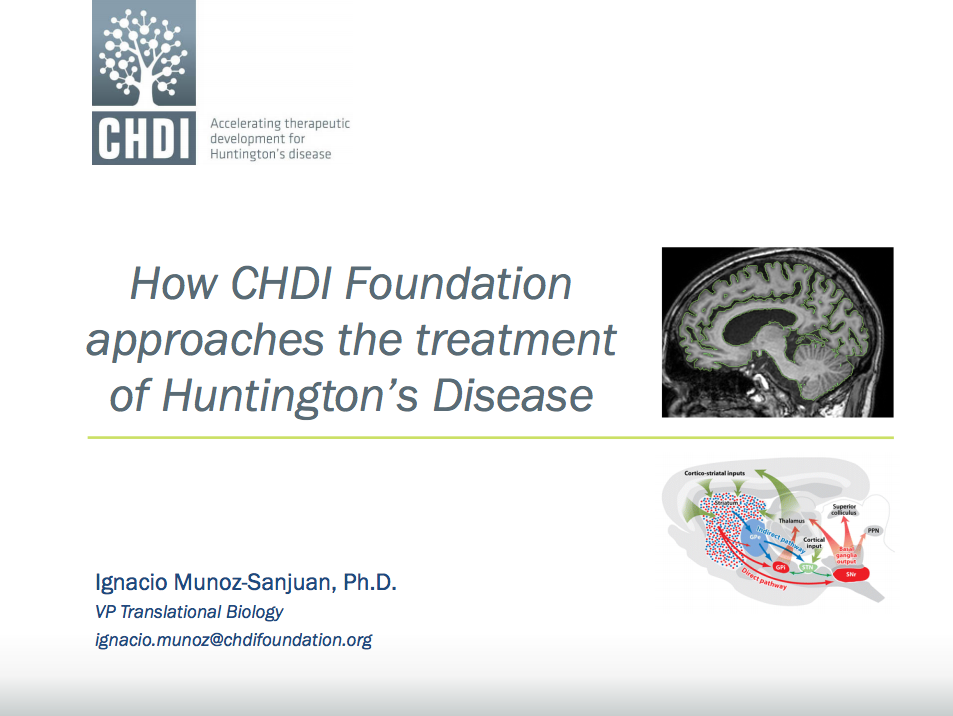Dr. Ignacio Muñoz-Sanjuán
CHDI Foundation: accelerating therapies for Huntington’s disease

The CHDI Foundation, funded by several anonymous philanthropic donors, is dedicated to fighting Huntington’s disease. As Ignacio Muñoz-Sanjuán (Vice President, Translational Biology) explains, philanthropic funding enables the CHDI Foundation to freely drive its research and explore avenues that others concerned with financial reward would not. The CHDI Foundation has unique capabilities to mobilise, combine and integrate knowledge and expertise from academia and the pharmaceutical industry to achieve the ultimate goal of curing Huntington’s disease.
About speaker:
Dr. Ignacio Munoz-Sanjuan is an expert in neurodevelopment, neural physiology and stem cells, concentrating on the identification and pharmacological modulation of novel pathways for the treatment of neurodegenerative disorders. He completed his PhD in Molecular Biology and Genetics at the Johns Hopkins University School of Medicine and received a Helen Hay Whitney Foundation Fellowship to investigate the molecular basis of early neural development at Rockefeller University. After this postdoctoral fellowship, he joined Merck Sharp & Dohme in the United Kingdom as a Research Fellow. There, he led a program on the pharmacological modulation of targets critical for adult neural stem cell proliferation and synaptic plasticity that focused on finding new treatments for psychiatric conditions. He then joined Amgen, Inc as a Senior Scientist, where he led several projects in the area of neurodegeneration, with an emphasis on non-amyloid strategies for Alzheimer's disease.
He joined CHDI in 2007. CHDI Foundation is a research and development organization whose single focus is to develop therapeutics for HD. As the VP for translational biology at CHDI Foundation, he is responsible for the oversight of all therapeutic programs, including all molecular (gene therapy and antibodies), cell therapy, and small molecule therapeutics of relevance to Huntington's disease (HD). Part of his work at the Foundation is to identify critical pathogenic mechanisms and to develop disease progression biomarkers which can help in understanding the potential effectiveness of novel treatments for this fatal, genetic neurodegenerative disorder. Besides the development of molecular therapies, he is also responsible for the development and evaluation of potential therapeutic molecules based on the major biological mechanisms thought to be implicated in HD: synaptic physiology of the basal ganglia, neuroinflammation, autophagy, Huntingtin expression and toxicity, and epigenetic mechanisms.

 Download
Download


